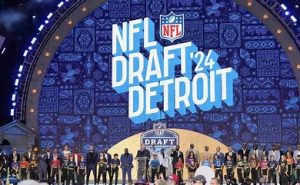
In a unanimous decision on Monday, the Supreme Court reinstated Donald Trump to the 2024 presidential primary ballots, overturning state efforts to bar the Republican former president over his alleged involvement in the Capitol riot.
The ruling came just a day before the Super Tuesday primaries, asserting that states cannot utilize a post-Civil War constitutional provision to exclude presidential candidates from appearing on ballots. According to the court’s unsigned opinion, the authority to enforce such measures rests with Congress.
Upon the release of the decision, Trump took to his social media platform, declaring it a “BIG WIN FOR AMERICA!!!”
The outcome marks the conclusion of attempts in states like Colorado, Illinois, and Maine to prevent Trump, the leading contender for the Republican nomination, from participating in the primary election due to his actions following the 2020 election, culminating in the January 6, 2021, Capitol attack.
Colorado Secretary of State Jena Griswold expressed disappointment in the court’s ruling, acknowledging that “Donald Trump is an eligible candidate on Colorado’s 2024 Presidential Primary.”
At the crux of the case was Section 3 of the 14th Amendment, designed to bar former officeholders who “engaged in insurrection” from holding office again. While Colorado’s Supreme Court had applied this provision to Trump, the Supreme Court sidestepped the issue of insurrection in its decision.
The court’s ruling asserted that states possess the authority to exclude candidates from state offices but lack the power to enforce Section 3 concerning federal offices, particularly the presidency.
While all justices agreed on Trump’s eligibility for the ballot, there was disagreement among the liberal and conservative members regarding the extent to which Congress must act to disqualify individuals from federal office.
Justice Sonia Sotomayor, along with Justices Elena Kagan and Ketanji Brown Jackson, criticized the majority’s interpretation, stating it limits the potential application of Section 3 to bar individuals from holding the presidency.
The decision raises questions about the potential for Congress to refuse to certify the election of Trump or any other candidate deemed to have violated Section 3.
The Supreme Court’s intervention in this case, alongside other pending legal matters involving Trump, underscores the significant role of the judiciary in shaping presidential politics. As Trump’s legal battles continue, the implications of these decisions on the electoral process remain paramount.









